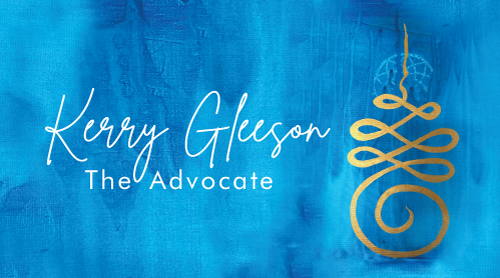Reiki and Energy Healing
Reiki Healing: A Gentle Path to Wellness
Reiki is a gentle form of energy healing that originated in Japan. Reiki is about connection, balance, and supporting your natural ability to heal. Whether you're familiar with alternative healing practices or completely new to them, Reiki offers a compassionate approach to wellness that can complement your existing healthcare routine.
What is Reiki?
Reiki (pronounced ray-key) combines two Japanese words: "rei," meaning universal, and "ki," meaning life energy. This practice is based on the idea that unseen energy flows through all living things, and when this energy is blocked or imbalanced, we may experience physical or emotional challenges.
During a Reiki session, a practitioner gently places their hands on or just above different areas of your body. There's no manipulation of tissues or pressure applied—just a gentle presence that helps facilitate your body's natural healing processes.
How Might Reiki Help You?
People seek Reiki for many different reasons:
Finding calm during stressful periods in life
Supporting recovery from illness or surgery
Easing discomfort or pain
Enhancing emotional wellbeing
Processing and releasing trauma
Supporting mental health and emotional balance
Deepening spiritual connection
Simply taking time for self-care
Many people report feeling deeply relaxed, peaceful, and renewed after sessions. Some notice shifts in their physical sensations, emotions, or thought patterns.
Reiki for Trauma and Mental Health
Reiki also offers a gentle, non-invasive approach for those navigating trauma or mental health challenges. The safe, nurturing space created during a session can help activate your body's relaxation response, potentially reducing anxiety and creating a sense of safety.
Many find that Reiki supports their mental health journey by:
Creating a calm, relaxed state that offers relief from overwhelming thoughts
Helping releases emotional blockages in a gentle, non-threatening way
Supporting better sleep, which can be disrupted by trauma and anxiety
Complementing traditional therapy and mental health treatments
What to Expect
A Reiki session is a deeply personal experience. You'll remain fully clothed while resting comfortably on a treatment table. The environment is peaceful, often with soft lighting and gentle music.
There's no need to believe in any system or philosophy for Reiki to work—it meets you exactly where you are. Whether you approach it from a spiritual perspective or simply as a relaxation technique, Reiki respects your individual journey.
Our Approach
Everyone is welcome, whatever your background, beliefs, or health situation, we welcome you. Holding a safe space, without judgment.
Reiki does not replace medical care or mental health treatment but compliments it well. We encourage open communication with all your healthcare providers as part of your integrated wellness approach.
Experience the Power of Distant Reiki Healing
Energy healing isn’t bound by space or time—it flows beyond the physical world, which means it can reach you wherever you are. Distant Reiki Healing is just as effective as in-person sessions, as I connect with your energy body—your aura, chakras, and meridians—to support your physical, emotional, and mental well-being.
A distant session can be deeply insightful and gently powerful. It’s ideal if you’re feeling blocked, seeking inspiration, or needing to reconnect with your body and energy. Many clients find these sessions refreshing and rejuvenating, offering clarity and balance from the comfort of their own space.
What to expect after your session
Post-Session Care & Integration
After your healing session, your body may go through a natural detox process that can last for several days. This is a sign that your energy is realigning. To support this transformation, drink plenty of water to help flush out toxins and support your body’s energetic flow.
Everyone responds differently—some feel calm and uplifted, others may feel tired as their body adjusts. Whatever arises, notice your thoughts, feelings, and sensations with compassion. Acknowledge, accept, and gently release what no longer serves you.
Transformation can feel unfamiliar but remember—this is a positive shift.
Support Your Experience with Self-Care:
Hydrate: Aim for 6–8 glasses of water daily
Nourish: Choose wholesome, grounding foods
Avoid excess caffeine and alcohol
Take time for solitude to reconnect with yourself
Prioritize rest and relaxation
Enjoy soothing activities like listening to music, taking magnesium baths, gentle walks, massage, swimming, or spending time in nature
Be kind to yourself. This is your time to integrate.

